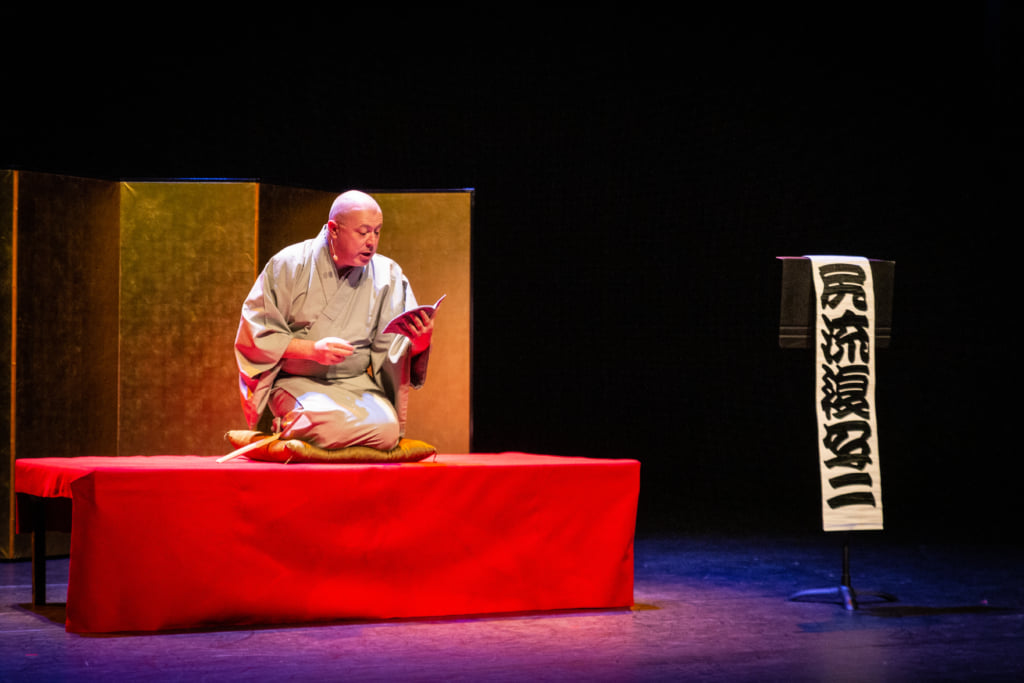
Spectacle de Rakugo (contes humoristiques japonais) par Cyril Coppini, conteur de Rakugo français, le 9 mars 2019 à l’École internationale de Genève.
Spectacle organisé conjointement par le Consulat du Japon à Genève, le Japan Club of Geneva et l’Ecole Internationale de Genève.
Photo: Stéphane Gallay, sous licence Creative Commons (CC-BY)
Inherited from tales by Buddhist preachers and now secularised, this solo performance involves a storyteller making the audience laugh.
Rakugo, which literally translates as ‘art of fallen words’, is making a comeback on Japanese stages. Dating back to the 17th century and originating from Buddhist tradition, rakugo experienced its heyday in the Meiji era (1868-1912) and particularly following the Second World War, when it adopted its current form. This also marked the period when it left the streets and private apartments for wood-panelled performance venues, that can still be found in Tokyo and Osaka today.
However, even though rakugo has become secular, the way it is performed still contains the asceticism so dear to religion. The storyteller, rakugoka, alone on the stage known as koza, kneels on a cushion, or zabuton, and does not move from this position throughout their performance. The performance takes place with them dressed simply, in a kimono, and their only props are a paper fan and a cotton towel.
Read the full article on Pen.

Comments
hey whats up guys
love this
You’ve done an impressive work on your website in covering the topic. I am working on content about Online Business and thought you might like to check out YQ9 and let me what you think.